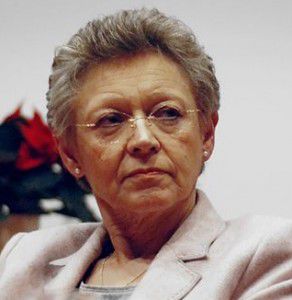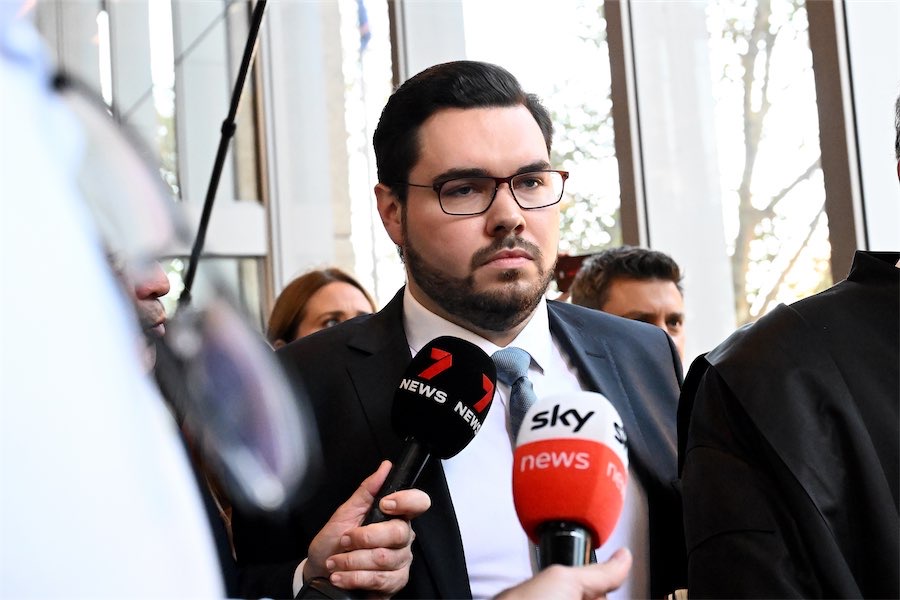THE tragedy of the AIDS epidemic has been with us since the early 1980s when the Nobel Laureate Prof Françoise Barré-Sinoussi and her team at the Pasteur Institute in Paris isolated the human immunodeficiency virus (HIV).

Some of the 298 people on board were heading to Melbourne to share their knowledge about the battle against this insidious virus.
Speaking at the National Press Club, the professor of microbiology emphasised the role that marginalisation and prejudice played in retarding the fight against HIV/AIDS.
On the same platform was former Secretary of Health in the Conservative Thatcher government who added his voice to the challenge that was faced in the early 1980s because of the marginalised groups such as gay men, sex workers and injecting drug users.
The marginalisation continues. The least powerful in our community are those most at risk. This was recognised by governments in Australia and elsewhere. Federal Health Minister Neal Blewett (Labor) and Shadow Minister Peter Baume (Liberal) had the courage to put politics aside to stand up and support gay men, injecting drug users and prostitutes. The results speak for themselves. Australia still has one of the lowest rates of spread of infection in the world.
However, the challenge continues. The third speaker at the Press Club, Australian Prof Sharon Lewin warned about complacency, revealing: “This year, again, we had the highest numbers of new infections”.
The three also discussed the parallel issue of the spread of Hepatitis C infection and the importance of tackling marginalisation, bigotry and prejudice.
There is no cure for HIV/AIDS although treatment has come a long way. There has been more success with Hepatitis C but the expense puts it out of reach of ordinary people. Prevention is still the most important approach to both infections.
The opportunity to take on the issue of increasing infection of AIDS and Hep C in Canberra remains. Chief Minister Katy Gallagher has made public that she is prepared to introduce a needle and syringe program in the Alexander Maconochie Centre.
Prisoners often fit into the marginalised groups already mentioned with the additional impact of being incarcerated. And yet the very people who are looking after these prisoners resist the introduction of the needle and syringe program.
Prison officers do not have to participate. A series of methods have been demonstrated that will allow this preventive approach without engaging the warders.
This is a health and human rights issue rather than a moral issue. The issue is not just one for warders, although they are integrally involved in the well-being of prisoners, it is one for the whole community.
Joep Lange, along with his partner and more than 100 AIDS researchers, scientists, medical practitioners and activists, died in the crash of MH17 on his way to the Melbourne AIDS Conference.
Prof Lange was a former president of the International AIDS Society who, amongst other things, worked tirelessly and was not one to shun marginalised groups. He was one of the key leaders in ensuring treatment reached the poorest people on earth and was founder of the PharmAccess Foundation.
The common factor amongst the scientists and activists was a sense of commitment and compassion for those around them, for those less fortunate than themselves. Rather than being judgemental they were compassionate, rather than letting things go on they were innovators, rather than giving up they persisted in looking for cures, in summoning the courage to speak out and to care for those not able to care for themselves.
If the same principles of persistence, courage and caring are applied in the fight against HIV and Hepatitis C in Canberra, the establishment of the needle and syringe program in the Alexander Maconochie Centre would be imminent.
Michael Moore was an independent member of the ACT Legislative Assembly (1989 to 2001) and was minister for health. As CEO of the Public Health Association of Australia, he was responsible for a report on an NSP in the Alexander Maconochie Centre in 2011.
Who can be trusted?
In a world of spin and confusion, there’s never been a more important time to support independent journalism in Canberra.
If you trust our work online and want to enforce the power of independent voices, I invite you to make a small contribution.
Every dollar of support is invested back into our journalism to help keep citynews.com.au strong and free.
Thank you,
Ian Meikle, editor





Leave a Reply